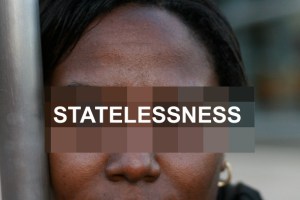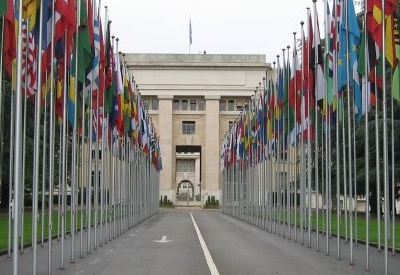Statelessness & Modernity
Concerning the Kurds, Tibetans, Palestinians and various Native groups, we observe the issue of statelessness as a fairly recent phenomenon in a multi-polar world. Given the apparent strength of this durable political machine, the question that leaves many political scientists scrambling for answers is: how did western-based developed nation-states view these events so tardily, and how can we ameliorate some of these situations that affect millions of people on a daily basis? UNRWA (united nations relief and works agency) reports that 1.5 million registered Palestinian refugees live in 58 recognized camps in Jordan, Lebanon, Syria, Gaza , the West Bank and Jerusalem.1
UNHCR (United Nations Refugee Agency) reports that conflict in Syria has led to the disbursement of 3,988, 857 Syrian refugees to neighbouring Turkey (1,758, 092) and Lebanon (1,196,560) comprising the majority of those individuals displaced through conflict between various groups and the Assad regime. 2
The Tibetan diaspora is reported by the CTA (Central Tibetan Agency) to number 127,935 with 94,203 living in India or residing in Indian refugee camps. 3
A York University researcher, Caryl Patrick, reported that in urban areas in Canada ..."more than 90% of those living on the street are aboriginal" where 10% exist in Halifax the problem extends across to Yellowknife where 95% of the homeless are aboriginal. Patrick explained in her report that the Canadian Aboriginal population comprises 4% of the Canadian population indicating an epidemic is upon us in Canada regarding the number of Aboriginal homeless on the street. 4)
A Brookings article indicates that Libya has 2 million people abroad, mostly in Tunisia with 400,000 IDP's (internally displaced people) inside Libya.5 The political crisis since the departure of Muammar Ghadaffi during the Arab Spring uprising that began in late 2010 and concluded, more or less by the middle of 2012. The aftermath for Libyans has a power vacuum between Islamists, two governments. The conflict has led to an exodus of migrants to Sicily in haphazard vessels that has been perilous, and in one instance, mass casualties.
UNHCR (United Nations Refugee Agency) reports that conflict in Syria has led to the disbursement of 3,988, 857 Syrian refugees to neighbouring Turkey (1,758, 092) and Lebanon (1,196,560) comprising the majority of those individuals displaced through conflict between various groups and the Assad regime. 2
The Tibetan diaspora is reported by the CTA (Central Tibetan Agency) to number 127,935 with 94,203 living in India or residing in Indian refugee camps. 3
A York University researcher, Caryl Patrick, reported that in urban areas in Canada ..."more than 90% of those living on the street are aboriginal" where 10% exist in Halifax the problem extends across to Yellowknife where 95% of the homeless are aboriginal. Patrick explained in her report that the Canadian Aboriginal population comprises 4% of the Canadian population indicating an epidemic is upon us in Canada regarding the number of Aboriginal homeless on the street. 4)
A Brookings article indicates that Libya has 2 million people abroad, mostly in Tunisia with 400,000 IDP's (internally displaced people) inside Libya.5 The political crisis since the departure of Muammar Ghadaffi during the Arab Spring uprising that began in late 2010 and concluded, more or less by the middle of 2012. The aftermath for Libyans has a power vacuum between Islamists, two governments. The conflict has led to an exodus of migrants to Sicily in haphazard vessels that has been perilous, and in one instance, mass casualties.
The international community is a reslilient amalgam of ideologies that operate in a vacuum, with self-serving interests.Modernity in our current state is, after all, mostly a Capitalist one that we operate in, save for the unfortunate folks in North Korea. China has democratized somewhat, though the sanctity of the vote and personal freedoms reman squelched by the various state apparatus. Tibet remains under lock-down, while Hanoi features a burgeoning private sector. The situation remains murky as we travel east to Syria, Palestine and Israel. Just to blow the top off of the whole thing, it is apropos to include the Aboriginal groups in North America and abroad, as well, in any discussion of statelessness.
If asked, many Canadian Aboriginals would scoff at the notion of life on a reserve as anything but democratic. Suffice it to say, we have a lot of work to do, but, can achievement be accomplished in a multi-polar world torn by economic interests. There is the problem of mounting deficits that curtails the effectiveness of most developed nation-states.
Matthew Happold sums up nicely the aftermath of the post-Soviet world that we currently live in that has put pressure on formal power relationships, such as Russia's intervention in Georgia, and recently in Crimea and the Ukraine. In addition, Happold notes that the collapse of the DOHA trade talks in 2008 remain mired in red tape that could foster economic growth globally with huge spin-offs to developing nations. Moreover, the emergence of China as an economic and military power, particularly in Asia, continues to strain formal political relationships due to the intransigent nature of Beijing's hold on dubious human rights policies and political beliefs. Finally, regional trading blocs and economic zones such as BRICS, and the United States hegemonic nature of managing terrorist threats, continue to create cleavages in international relations. 6
If we consider the absence of a super-power or a role - reversal for America with China, for instance; can a fragmented international community function effectively with a pre-eminent power subscribing to dubious human rights violations, environmental degradation through policies that nurture it's own economic interests and political salvation? This remains to be seen and could throw a greater divide between those nation-states that support it for economic or military purposes and those nation- states that oppose those creeds. In the latter case, a return to an early 20th League of Nations rendering of global balance of power and Realpolitik; in the former, a return to a pre Cold-War period where American sovereignty and NATO countered Soviet spread of Stalinism and the Warsaw Pact.
Therefore, can the international community reconcile the issues of statelessness of Syrians, Libyans, Palestinians and Tibetans in a well orchestrated quid pro quo in a bi-polar, multi-polar, or some might agree, a uni polar world that is the current form of political power.
It seems that a multi-polar world coalescing with a goal of collective security through an organization such as an expanded United Nations, can help to ameliorate the length and scope of some refugee crises within a single organ (Security Council) with broad reaching powers, while dismantling an organization such as NATO, that has fomented anger in Moscow, and, is an icon of western political excess.
Many problems arise with a global UN and expanded powers (within its proscribed Chapter VII range to maintain peace and security,) such as, funding by member states, military budgets within member states, selling it to various levels of government as a viable mandate, and public acceptance. The latter two will be most problematic with the US Congress and Senate feeling their authority threatened (as will other nation-states such as the E.U.) and the prospects of warfare among various NGO'S and INGO'S for monetary support to keep their jobs. Perhaps we might call that "concentrated outsourcing."
Consider the strength of American funding for 2015 to the entire UN budget with a contribution of 22% or $654, 738,938,000.7 George W Bush famously battled with the UN over Iraq's alleged WMD that the US used to unilaterally enter into a war, (many would say unfinished business) with Saddam Hussein. The strength of withdrawing funding becomes a war of words that ultimately ends with victory for those member states that write the biggest cheques. Most of us aren't going to argue with our bosses too vehemently towards the end of the pay cycle. Such is the case with another UN organ - the ICC (International Criminal Court) that prosecutes those leaders accused of war-crimes at The Hague. There is a strong argument for George W Bush to be charged for war crimes during the second Iraq war, though, how can the UN function with a diminished contribution from America if it's President is being embarrassed internationally and the entire nation, with it. So, the argument for UN expansion has it's merits to spread out the responsibility for global peace and the cost to achieve it (over the outdated mode of the P5) that puts far too much pressure on the United States and not enough accountability to the other four members, notably Russia and China. Some may argue that that is well and good, a quid pro quo for American President Woodrow Wilson who was instrumental in founding the League of Nations in 1920, though, the United States never became an official member during Wilson's mandate, or during the League's tenure from 1920-1946.
The U.S. military budget for 2015 was tabled for 2015 at 813.9 billion, so, comparatively, the UN budget is nearing US military expenditures. Is the premise of "collective security" UN operational costs run tantamount to this degree of spending when US Federal interest payments for the year are slated for 229.2 billion. In it's present form the UN seems a poor investment for the cost, particularly, for the U.S. with an investment to operate NATO for 2015 at U.S. 585 billion. 7
The question becomes one of statelessness and how the international community is responding to Jus Post Bellum i.e. the reparations post war that enable people to return home. In one instance, we can say that the Palestinians have been forsaken by the international community, since the formation of Israel. We can say that Tibetans have been largely ignored since the Chinese occupation, and Aboriginals within their own nation-states i.e. Jus soli - right of the individual born in a territory to citizenship, since colonization.
Statelessness will continue to imperil our best attempts to aid these folks who desperately need and are seeking a better life. Perhaps the defragmented current multi polar world has left us without the focus that we had in a bi - polar orbit, now affected by social media, outsourcing, and severe budget deficits.
Works Cited
1)http://www.unrwa.org/palestine-refugees
2)http://data.unhcr.org/syrianrefugees/syria.php
3)http://en.wikipedia.org/wiki/Tibetan_diaspora (taken from "127935 Tibetans living outside Tibet: Tibetan survey". Press Trust of India. 2010-04-12. Retrieved 2010-12-17.
4)http://www.cbc.ca/news/canada/thunder-bay/aboriginal-homelessness-an-epidemic-york-researcher-says-1.2589861
5)http://www.brookings.edu/blogs/future-development/posts/2015/03/17-libyan-refugees-tunisia-karasapan
6) Happold, Matthew. International Law in a Multipolar World. Routledge:London and New York. 2012, 2.
7) United Nations Secretariat. Assessment of Member States’ contributions to the United Nations regular budget for the year 2015. 29 December 2014. 9 May 2015. <http://www.un.org/ga/search/view_doc.asp?symbol=ST/ADM/SER.B/910>.
2015





